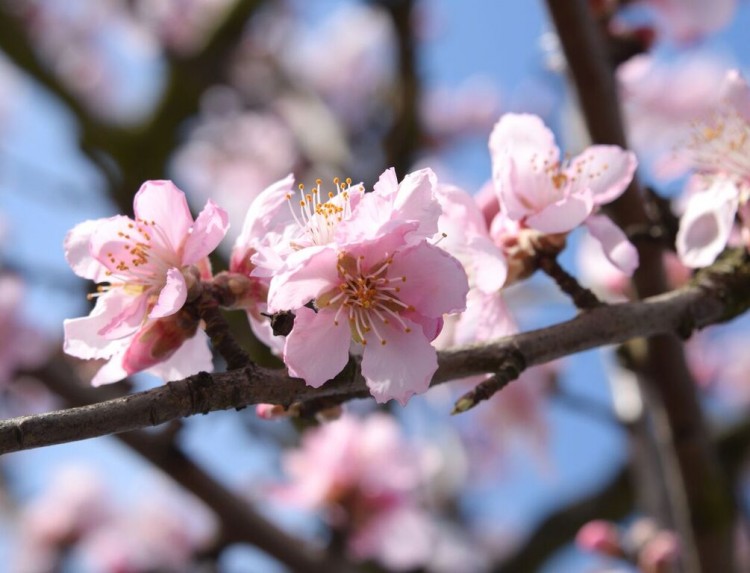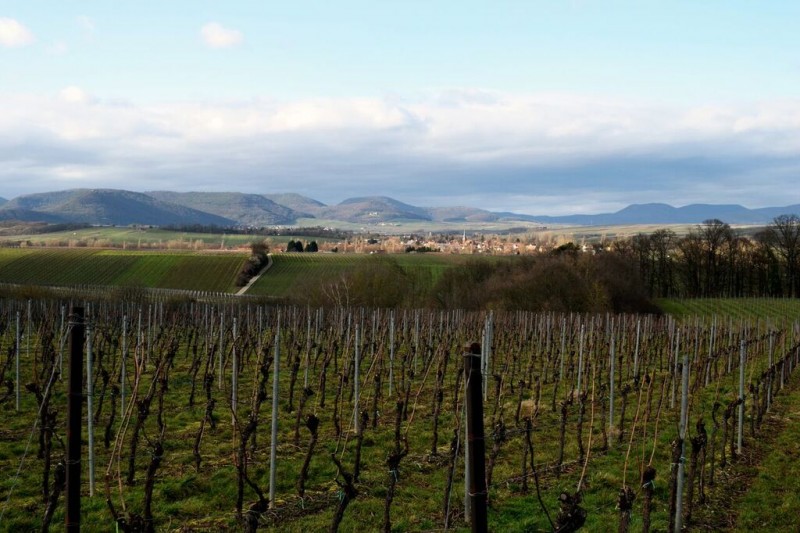
Laura Siepmann is a master’s student in the Sustainable Development program at Uppsala University, studying organic wine farming in the regions Pfalz and Rheinhessen, Germany under the supervision of Kimberly Nicholas of Lund University.
As I strolled through vineyards in the German wine region Pfalz recently, there were beautiful rose almond blossoms all around me. As a farmer told me: “It’s February and they are not blooming a little, they are in full bloom.” Another farmer called the unseasonably early bloom “fascinating… I am shocked.”
The warm, early spring this year is causing almond trees to wake up ahead of schedule, but farmers are very sensitive when it comes to climate change with all its implications. For wine farmers in the German regions Pfalz and Rheinhessen, higher temperatures, hail, and late frost are the top concerns. But if it comes to adopting environmentally friendlier farming practices, what are farmers considering?

Figure 2: Vineyard in the Rheinhessen region.
As researchers in OPERAs, including in the Wine Exemplar, are working directly together with practice partners, an important aspect is how farmers see nature and under which conditions they are willing to change their farming practices. Thus, I am investigating in my Master thesis, which motives and barriers wine farmers in the German wine regions of Pfalz and Rheinhessen have to adopt organic farming practices.
To discover these motivations, I conducted interviews with wine farmers in the end of February. The aspect that was probably mentioned most by both conventional and organic farmers was the goal to have a healthy soil. “For me, the soil is the foundation of all wine quality and when you feel a little with it, so when you work with your gut feeling (…) then you’ll get a sense for your soils”, one farmer told me, who smells his soil to decide its condition. Another farmer who converted to organic farming is sure “if you would go out to the field now and you would count earthworms, I’m sure we have more [now than before]”.
It is striking how much farmers think about and have their own perspective on a healthy environment, with corresponding implications for their choice of farming practices. Illustrating what several farmers told me about certification: “…but nature is too diverse to talk about black and white only”.
My thesis including a comprehensive literature review and a detailed analysis of the interviews will be bottled into dense, crisp results in June this year, a bit like harvesting grapes: “… the bottom line is that you have only one chance a year. It is only harvested once.” Stay tuned for the results!

Figure 3: Vineyards in the Pfalz region with the Palatinate forest in the background.
